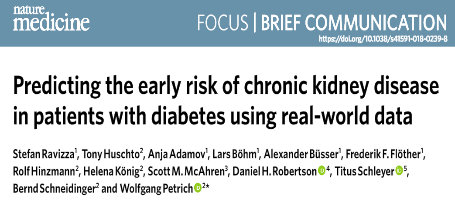
Algorithm predicts patients at risk for chronic kidney disease
28 February 2019
Using half a million electronic health records, a Roche-IBM predictive algorithm outperformed published algorithms derived from clinical trial data in a one-to-one comparison, as well as in cohort studies.
Results of the research, published in the journal Nature Medicine, were based on a year-long collaboration between Roche (the study lead), IBM, Eli Lilly, the Regenstrief Institute and the Indiana Bioscience Research Institute. The Algorithm supports a more prognostic approach to identifying patients with early risk of diabetes-related chronic kidney disease.
“This study demonstrates the growing importance of real-world data (RWD) and predictive analytics in diabetes care,” said Mark Davies, chief medical officer (Europe) for IBM Watson Health. “There is a growing need to improve screening performance and the decision-making processes in diabetes care, and this new data suggest that RWD and analytics can be applied in early recognition of risk of CKD.” Study authors assert that these extracted EHR datasets constitute the largest RWD basis, used to date to investigate CKD as a long-term complication of diabetes. While further testing will be conducted, the diversity of the RWD makes the prediction algorithm better suited for generalization
